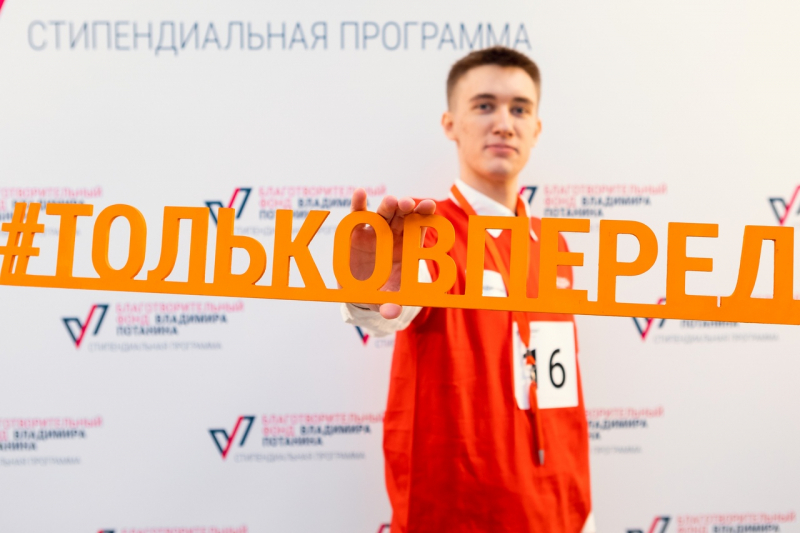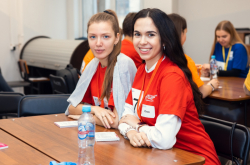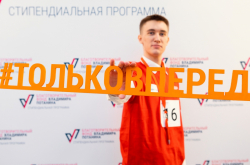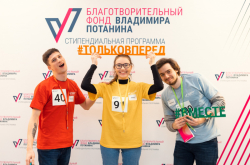Galina Grenning, first-year Master’s student, Science Communication
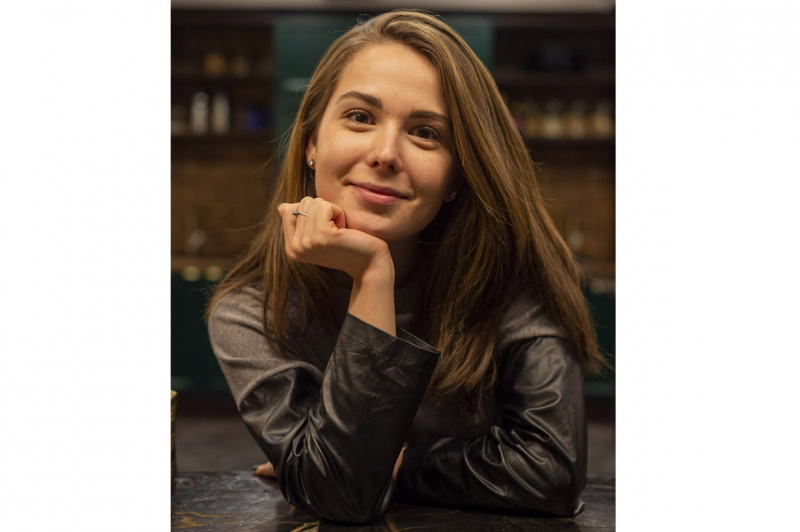
After getting my Bachelor’s degree, I spent three years organizing scientific and educational events for healthcare specialists. At that time, I actively collaborated with nonprofits that promote the prevention of major diseases (e.g. HIV, hepatitis) and support those who are afflicted by them. I currently work at a nonprofit and I am planning to write my Master’s thesis on communication strategies for third sector organizations that advocate treatment for HIV patients and encourage devotion to therapy.
Last year, I took part in the Rukami project. Together with a team from ITMO, we collected data about technological clubs across Russia to create a guide people could use when picking up a new hobby. This work allowed me to meet many incredible club heads, organizers, and teachers. I understood that if such people were around me when I was in school, my life could’ve been different. For instance, there is a center in Kazan where children get to learn to fly actual single-engine planes. Isn’t it wonderful?
Now, I am a mentor of a project at Sirius. Together with school students we learn to work on projects and conduct research: we run a little study on analyzing the efficiency of career guidance events in IT in St. Petersburg and learn the basics of event management to create a concept for our own event. I had been wishing to work with children for a long time.
I had already taken part in scholarship and grant competitions before. One of my biggest disappointments was losing in the British Petroleum scholarship contest during my Bachelor’s studies. After that, I forgot about such opportunities for a long time. This year, I started working with a fundraising expert at my nonprofit. Her experience and support helped me to pass all stages of the Potanin Scholarship Contest with flying colors.
Before sending in my application, I had read many articles about the contest to try and find some advice. The majority of participants said that there just cannot be any recommendations. The tasks change every year and you never know what the organizers will come up with next. Having gone through both stages myself, I can say that it’s truly like this. Naturally, your personal traits and achievements play a big role in such competitions. Each of us has their strengths and weaknesses. For instance, I have nothing to boast in research – but I do have extensive work experience and I am socially active, which is no less important for the Potanin Foundation. The most important thing is to see the value in yourself and your activities, so that you can tell others about it.
Natalia Gorokhova, second-year Master’s student, Robotics and Artificial Intelligence
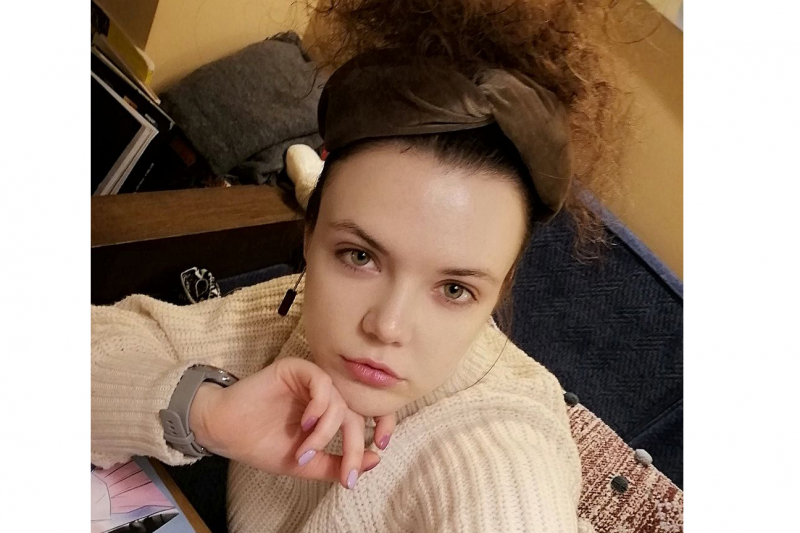
It’s not my first time taking part in this contest. Last year, I also applied but didn’t even get to the second stage, which of course was a heavy blow. But I think it was for the best because this year I had more confidence in my portfolio and achievements. I wasn’t aiming to win, because it’s all not unlike a lottery, so I decided to simply enjoy the process.
Over the last few years, I have been living by the simple principle of “what if?” It helps me to be open to new ideas and experiences. I often hear that some of my suggestions and thoughts are absurd, but I rarely pay attention to these comments and simply continue doing what I like. It could be that this principle was the reason I won in the contest and achieved other things in my research activities.
That was how I came up with an idea for my Master’s thesis and other competitions. Ever since my Bachelor’s studies I wanted to bring together healthcare and technology. My idea for the corrective insole has three main functions: it takes the load off the sole, supports recovery, and helps treat plantar fasciosis, a common orthopedic disease.
Last year I was really lucky – my insole project won in the UMNIK-2019 and the Science and Higher Education Committee contests. I hadn’t won anything before!
I wish one simple thing to anyone taking part in any competition – don’t be afraid to be yourself and be open to new ideas. Remember that even if a hundred or thousand people think your idea is absurd, there will surely be some who will find it interesting and support you. However, I’d also say this: don’t make victory your goal. It doesn’t mean that you shouldn’t do your best. But you have to enjoy the process and then the result will come by itself – and it will be so great that you will be surprised.
Sofia Bochkova, second-year Master’s student, Light-Guided Photonics
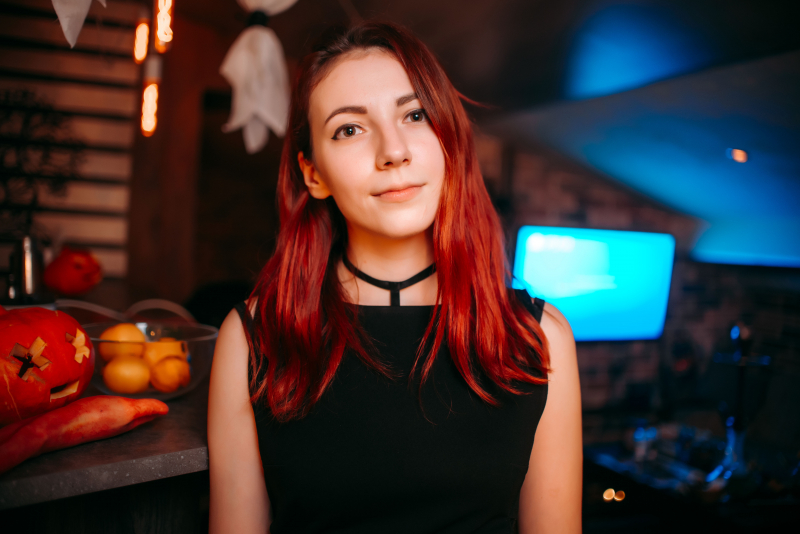
I am an engineer and a researcher in the tight-knit and ambitious team of ITMO’s Research Institute of Light-Guided Photonics. I work with optical amplifiers and develop the software and hardware for fiber-optic diffusers created by molding the core of an optical waveguide. For my Master’s thesis, I am developing a method of localizing the impact on composite materials with a system of four fiber-optic acoustic emission sensors. In my free time, I help dog shelters together with the Paws of Help student club. I am planning to enter a PhD program next year and I would really like to start teaching once.
I do a lot of research, take part in conferences, and write articles. I won’t say I often take part in contests, but I do it occasionally. I won ITMO’s enhanced scholarship competition and the Presidential scholarship for priority fields.
The Potanin Contest was a challenge for me. Over the year, I gained teamwork experience and other soft skills (time management, emotional intelligence, tech entrepreneurship, etc.) and became more confident. I really wanted to test myself. A great boost was the support of my supervisor, Ivan Deyneka.
Now that I’ve won both stages of the contest, I can say that it is another huge step forward in implementing my ideas and projects. As I am not a native of St. Petersburg and don’t have a place to live here, this financial support will be the means of finding myself a small space to call my own.
To those wishing to participate, I’d say that in the first stage your publications, your grades, and letter of motivation will be of help. And in the second stage it’s important to actively take part in every task and stay confident.
Vadim Rybin, first-year Master’s student, Physics and Technology of Nanostructures
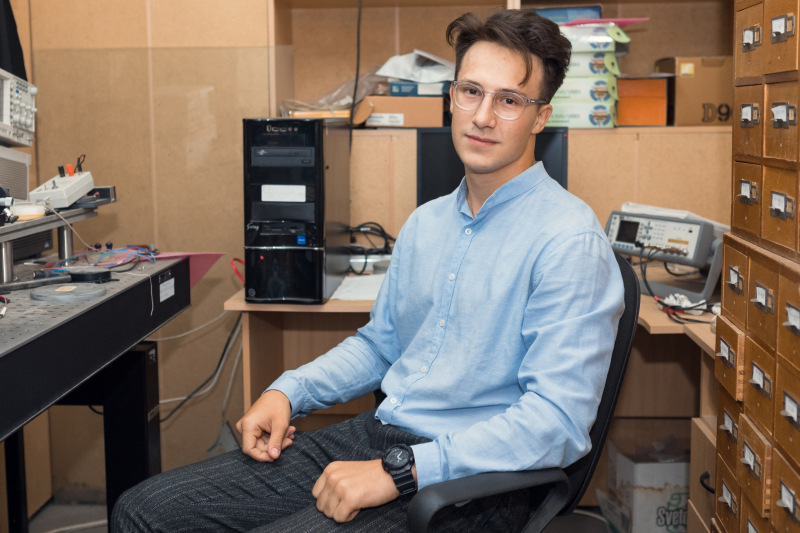
I applied with my Master’s project on nondestructive analysis of mesoscopic objects. Though the biggest emphasis in the application was on your leader qualities and altruism. Apart from studying, I am also head of the It’s a Trap student laboratory. It’s a rather young club – it’s less than a year old. We currently have 14 members and all of them do research, both theoretical and experimental. We teach our members to conduct scientific work and excel at academic writing. Despite only being in the first or second year of their Bachelor’s, our members have publications in international journals. We have recently secured a room at ITMO’s Technopark and I am now trying to equip it with everything we need by applying for funding and grants. Not long ago, I won the Presidential scholarship.
In order to win, you don’t actually need to have superpowers or take up all the space in your team – you just need to be communicative and flexible, as well as listen to your partners. And don’t forget that there is always an expert watching your team to identify its leaders. Even though we work together, we are still competing.
My performance was rather good in every round, I was attentive and polite with my teammates, I didn’t try to be the loudest or convince anyone that they were wrong. Maybe that was why I won. By the way, my teams always took first place after a game-round, although I don’t think it was a decisive point for the experts.
I can only envy the future participants. I would love to go through the second stage once more. You definitely should apply! It’s a great experience that will come in handy.
Alina Rozenblit, first-year Master’s student, Physics of Radiofrequency Technology
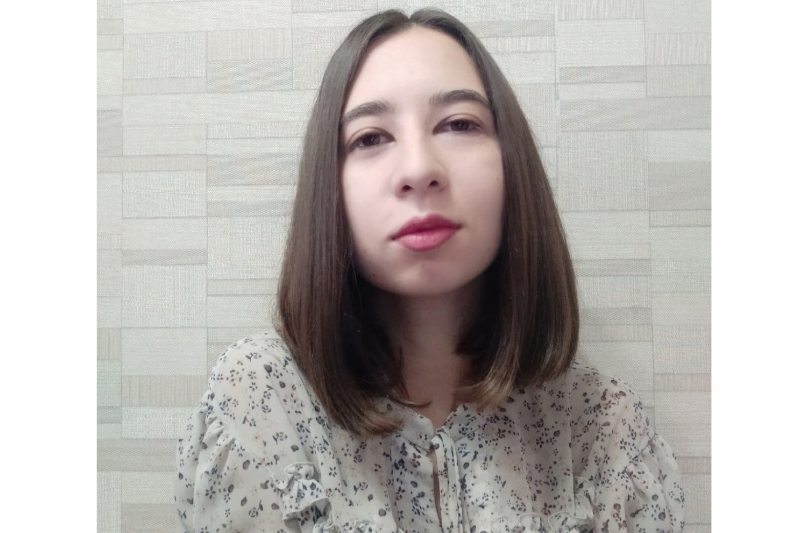
I study topological edge stages in electric chains. This is a hot topic in various fields of physics – in my case, optics. Moreover, I do research in phase transitions in robot ensembles. Right now, our team is working on an experimental installation that will include 100 robots. We want to see how the collective dynamics of the system changes with the friction coefficient of active particles.
My soft skills lecturer, my supervisor, and the people I knew who took part in the contest advised me to apply. I got my Bachelor’s degree from Peter the Great St. Petersburg State Polytechnic University and during my years there I was an active resident of the FabLab Polytech digital laboratory. Here, I organized events, ran projects, curated the projects of other students, taught an Arduino programming course, and in my final year I was elected president of the lab.
To be honest, I didn’t expect to win, but I was hoping to. Final rounds were held in several days and mine had the number 13 – and the day before the event I had a dream that I slept through it. I tried to analyze my performance after each round to see how well I demonstrated the competencies evaluated by experts (creative and critical thinking, teamwork, etc.). I thought that some tasks went well, while at others I could’ve done better.
Before the contest, I asked former participants what helped them win. Everyone said, “I didn’t do anything special.” And I understand them perfectly now. It’s hard to objectively evaluate yourself and the organizers never publish the points given by experts. Of course, at the first stage, your achievements play a big role. And at the second stage, it doesn’t matter what you study and how many contests you’ve won before, but only your performance in the team is important. I think my general experience of collaboration helped.
Before the contest, organizers recommend you to be yourself and speak up even if you think your idea is crazy. I followed this advice and I’d tell future contestants the same. Also, you shouldn’t analyze yourself during the contest. Each round allows you to show a different side of your personality – and any weaknesses can be turned into strengths.
Maria Alikina, second-year Master’s student, Technology Brokerage in Nanoengineering and Biotechnology, SCAMT
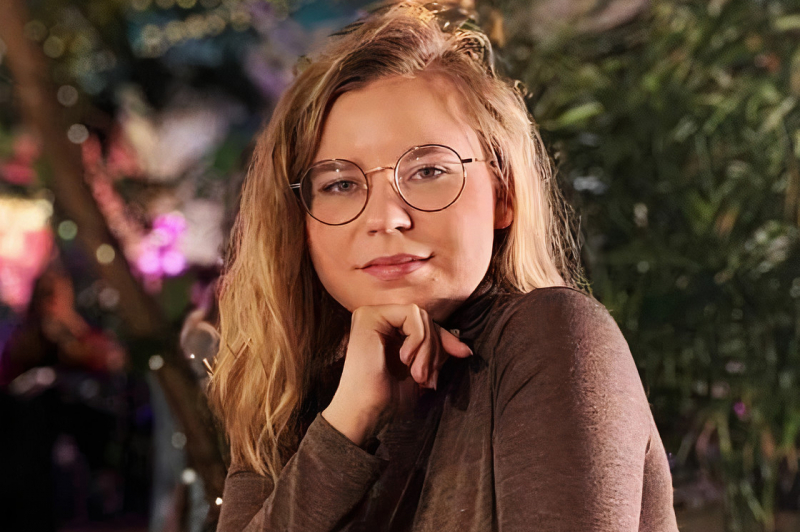
I work at an industrial laboratory of ITMO’s SCAMT Institute, where I implement the commercial and scientific components of industrial projects. I am currently bringing to market a technology for the paper industry – and I will be defending my Startup As Thesis on this topic in 2021.
I already had experience with taking part in scholarship and grant contests – my team and I won the Start-1 grant from the Innovation Promotion Foundation. I have also won the Presidential and Government (Russian and St. Petersburg) scholarships.
It was my second time taking part in the Potanin Scholarship contest – now successfully! First of all, I wanted to practice writing CVs and letters of motivation. Second, it was a chance to get more experience in interpersonal training sessions that help develop leadership and communication skills. And third, naturally, is the financial support provided by the Foundation until the end of our Master’s studies.
It’s hard to expect to win, as the competition is stiff and only students with the necessary background and personal traits get to the second round. This year, the online format seemed easier than the on-site one from last year. Communication inside each team was more efficient and soulful, maybe because many of us took part from home.
If you want to take part in such a contest, be yourself, enjoy the process, and learn to promote yourself and your team. Also, rejoice at new experiences – it is always useful.
Olavi Siikki, second-year Master’s student, Innovative Entrepreneurship
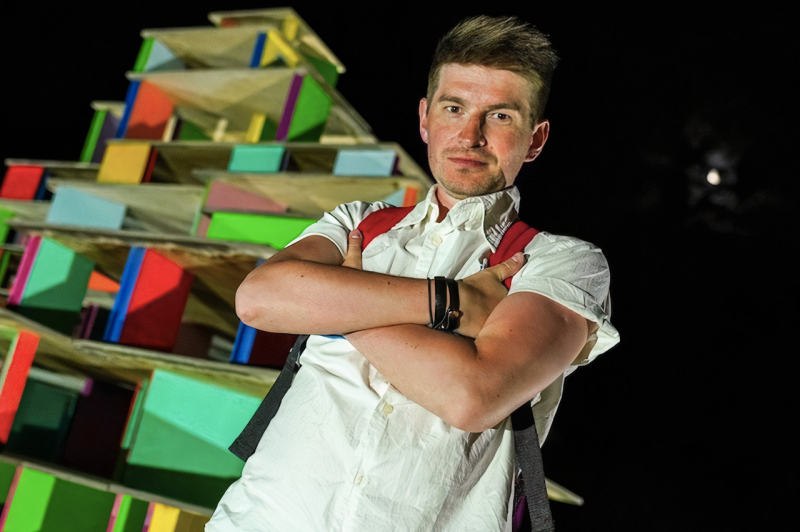
Naturally, in my application I stated that I am the founder of the WARMR startup, but it was not the most important thing. I am also head of ITMO’s Startup Thesis Club, so I am a mentor. Our startup is growing and we have many new ideas that make our project more complex and interesting. We have recently secured a long-term partnership with Red Fox, which means we will start implementing our solutions into their products, developing a new line of smart clothing and accessories.
The tasks in the contest weren’t that hard, but they took up the whole day. However, it was rather fun. There was a maths game – I came out a leader in it. We were then asked to solve global social tasks, such as the problem of parking in cities. We had to quickly come up with a creative solution that wouldn’t be repeating any others. The third task was writing an ode, using random objects on your desk. My team wrote a great ode to a pen that went to space.
It would be hard to say exactly why I won. What did I do? Absolutely nothing – I just was myself, I didn’t do any particular preparation before the second stage.
To future participants, I would say: work on your soft skills, don’t be a bore or fight for attention. Love and friendship always win, while tolerance and creative thinking help to solve any task. Don’t forget that there are no superiors or inferiors in a team. There is always a leader, but oftentimes, they are not the key player. Also, there are no orders in a team – it’s an outdated practice that doesn’t work now.
I value the experience given by this contest, because it truly isn’t simple to get the scholarship. Even the application is great practice in analyzing yourself – and it’s good to do it from time to time. It was interesting to meet everyone who got to the second stage. Those were not simple people, but those who have achieved something, so I was pleased to meet them all. It was a pity the contest had to take place online, I think we would’ve developed closer connections if we were there in person. But I think we are bound to meet again.
